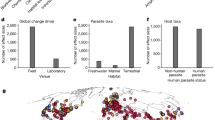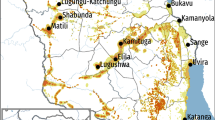Abstract
IT is sometimes said that natural selection has ceased as regards civilised man; but very clearly this is an error. All civilised and most savage races are very stringently selected by various forms of zymotic disease. Thus in England practically everyone is brought into contact with the organisms which give rise to tuberculosis, measles, and whooping-cough; those individuals who are the most resistant to the organisms repel infection (i.e. do not fall ill), the less resistant suffer illness but survive, the least resistant perish. Abroad, malaria, dysentery, and many other complaints play a similar rôle. Probably no one is absolutely immune to any disease; but since illness only follows invasion of the tissues by a sufficient number of the microbes (the sufficiency of the number varying with the individual attacked), and since the microbes are more abundant in some localities than in others, the stringency of selection as regards any disease is greater in some places than elsewhere. For example, selection by tuberculosis is more stringent in the slums of cities than in the country. It should be noted, also, that resisting power against any one disease does not imply resisting power against any other; thus an individual innately strong against measles is not necessarily strong against tuberculosis. The result of all this elimination by diseases demonstrates the action of natural selection very beautifully. Every race is resistant to every disease strictly in proportion to its past experience of it. Thus Englishmen who have suffered much from tuberculosis are more resistant to it than West African Negroes who have suffered less, and much more resistant than Polynesians who have had no previous experience of it; that is, as a rule, Englishmen, under given conditions, contract the disease less readily, or if infected recover more frequently, or if they perish do so after a more prolonged resistance than Negroes and Polynesians. Negroes, on the other hand, as South American plantation experience proves, are more resistant to malaria than Asiatic coolies, who in turn are more resistant than Englishmen and Polynesians.
This is a preview of subscription content, access via your institution
Access options
Subscribe to this journal
Receive 51 print issues and online access
$199.00 per year
only $3.90 per issue
Buy this article
- Purchase on SpringerLink
- Instant access to full article PDF
Prices may be subject to local taxes which are calculated during checkout
Similar content being viewed by others
Rights and permissions
About this article
Cite this article
REID, G. The Causation of Variations. Nature 72, 318–319 (1905). https://doi.org/10.1038/072318b0
Published:
Issue date:
DOI: https://doi.org/10.1038/072318b0



